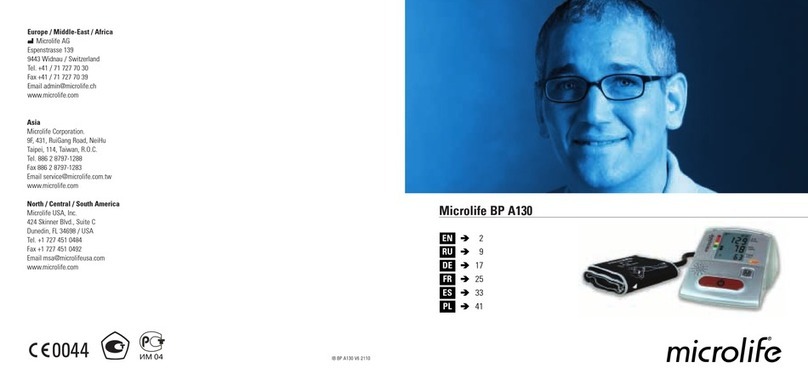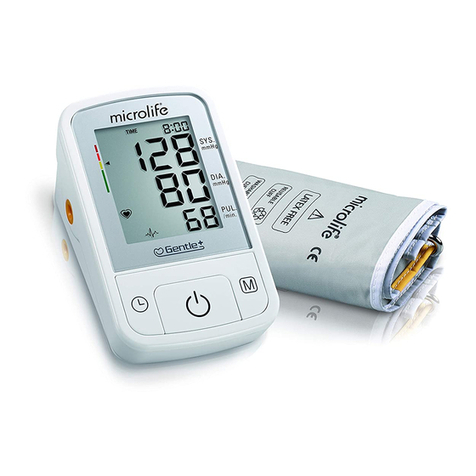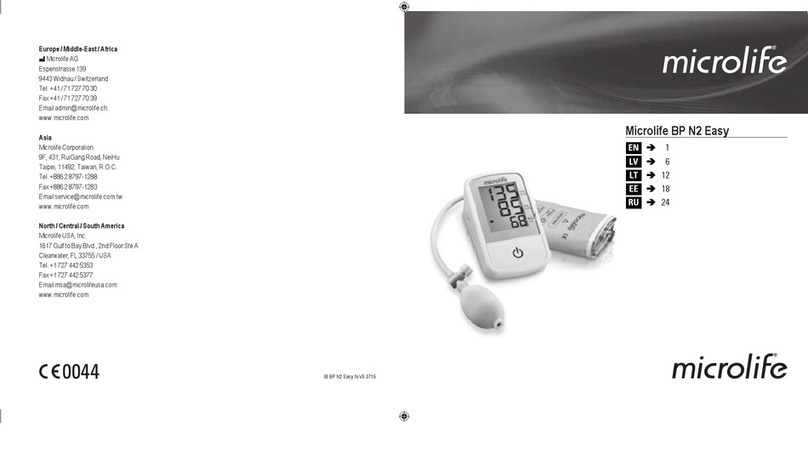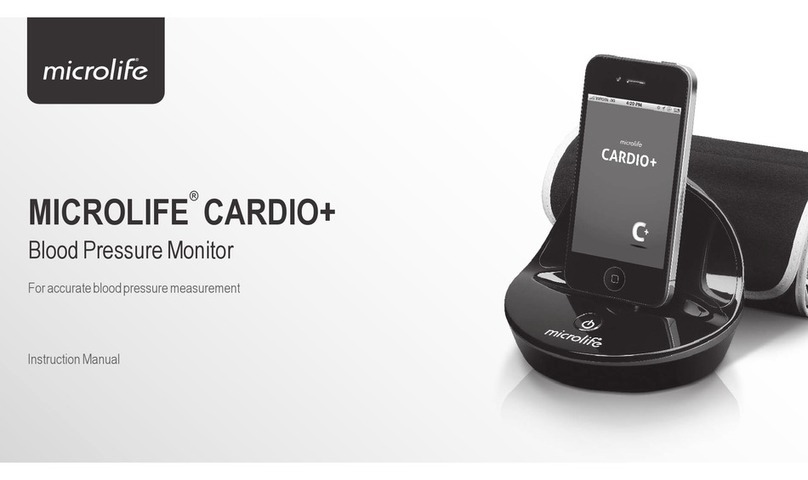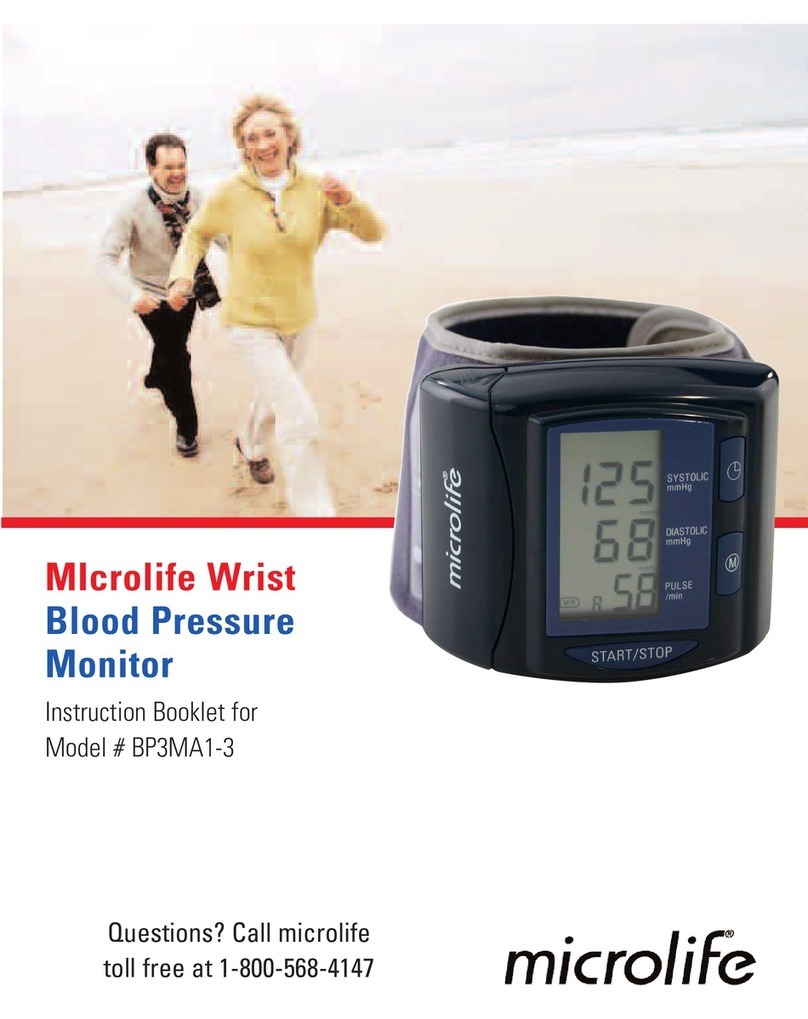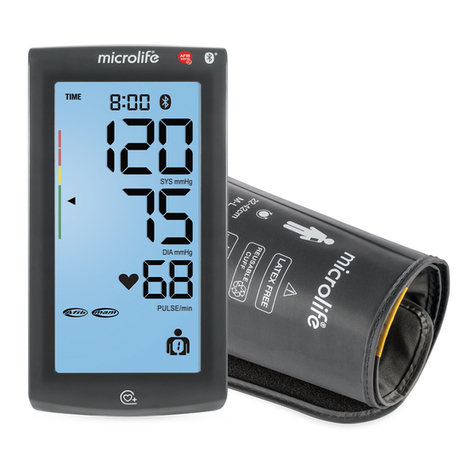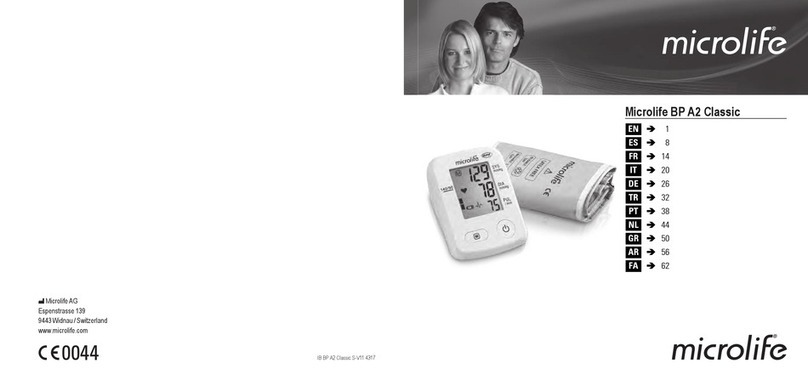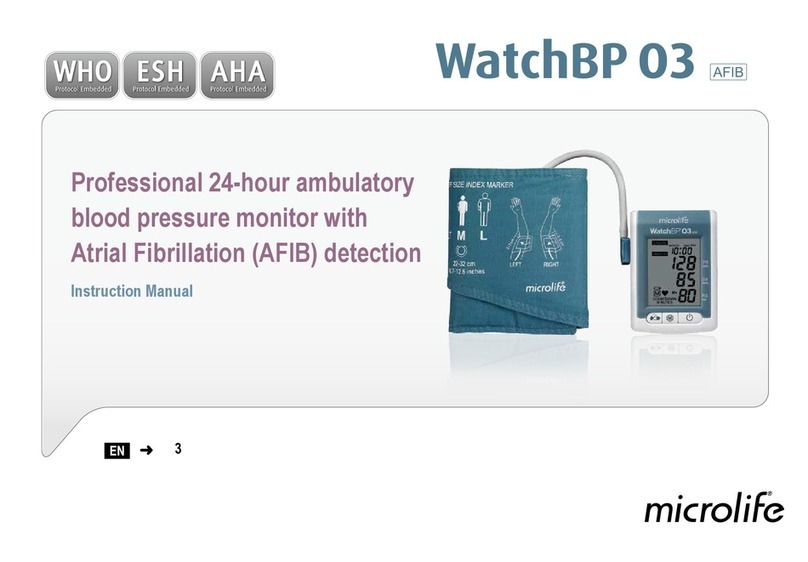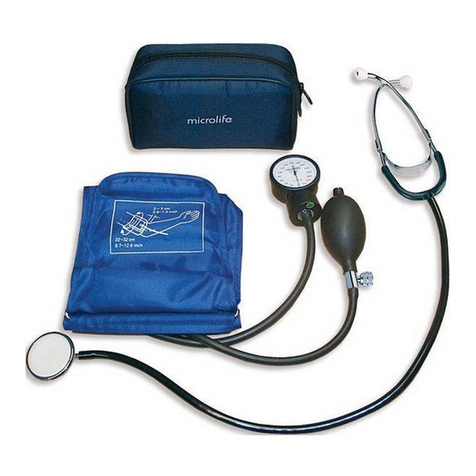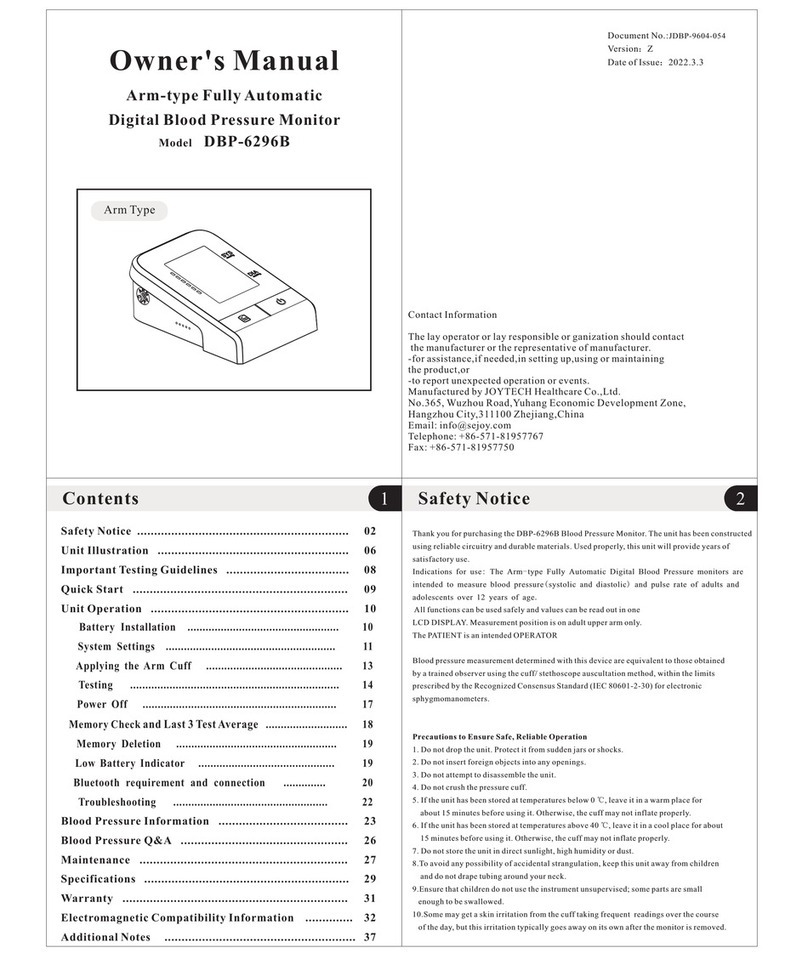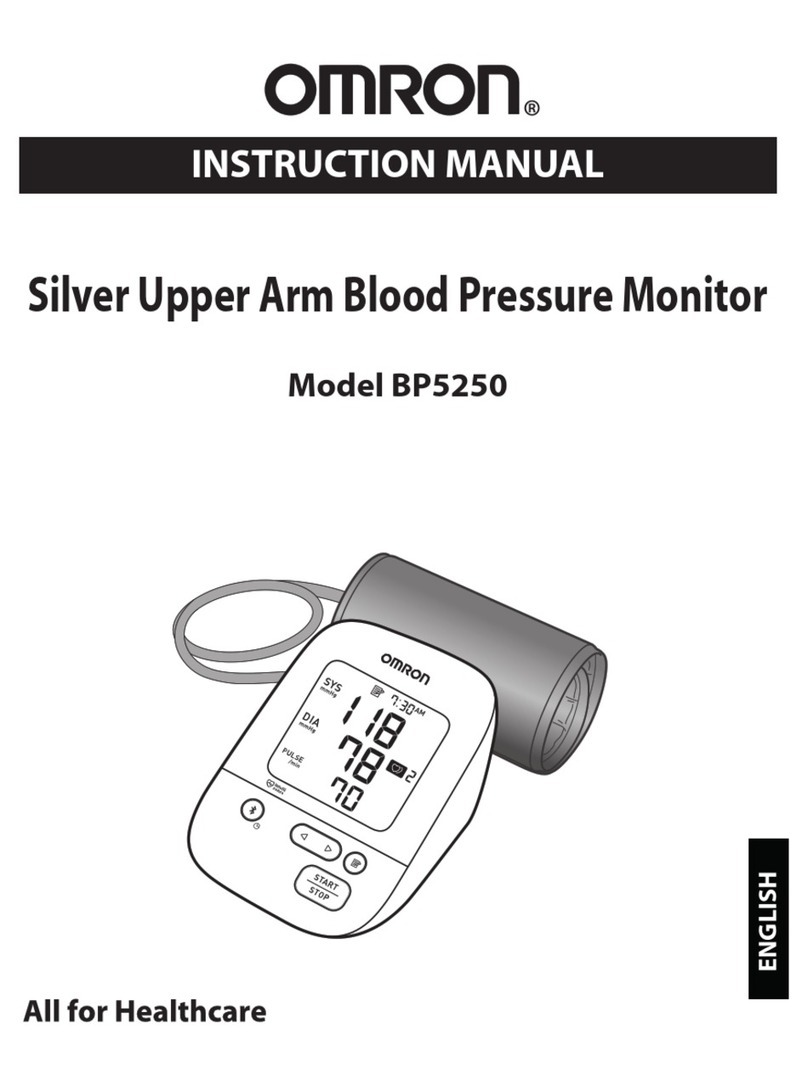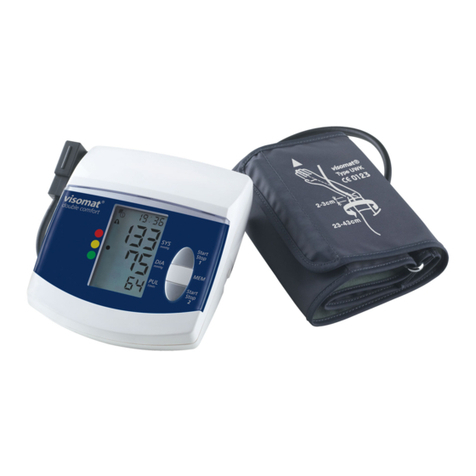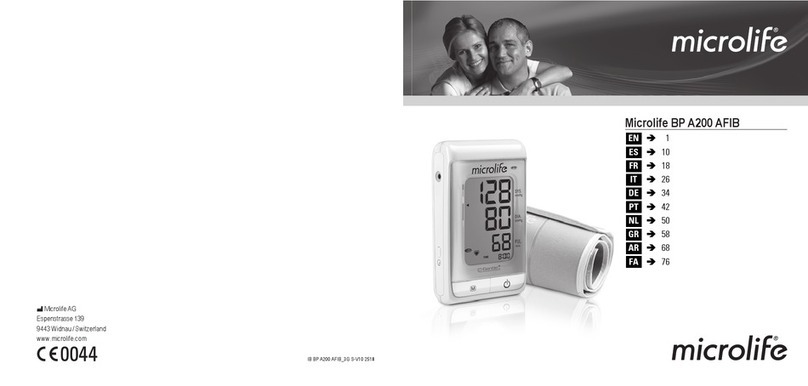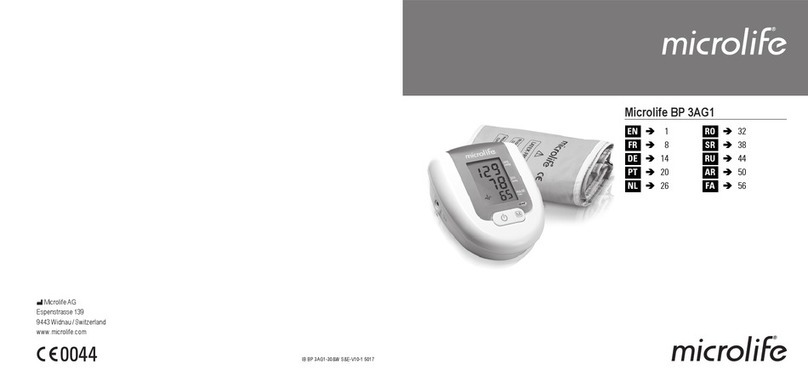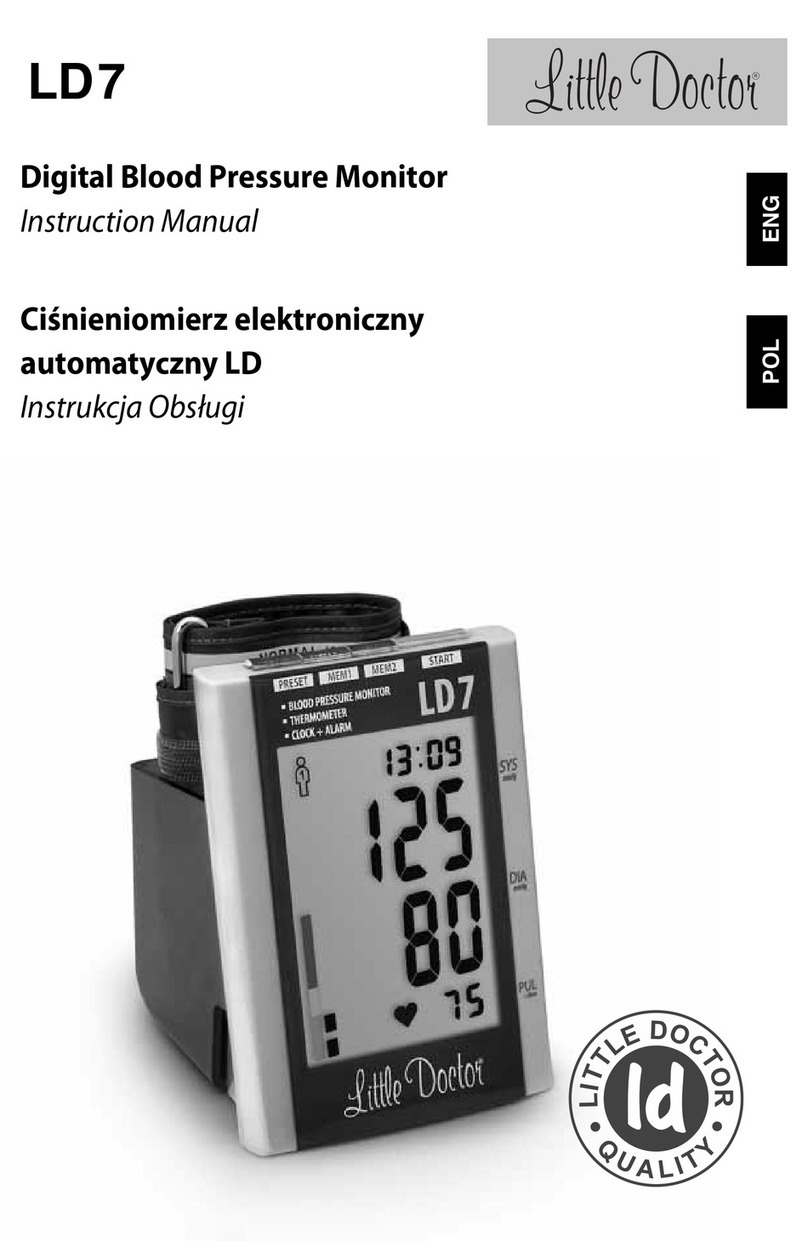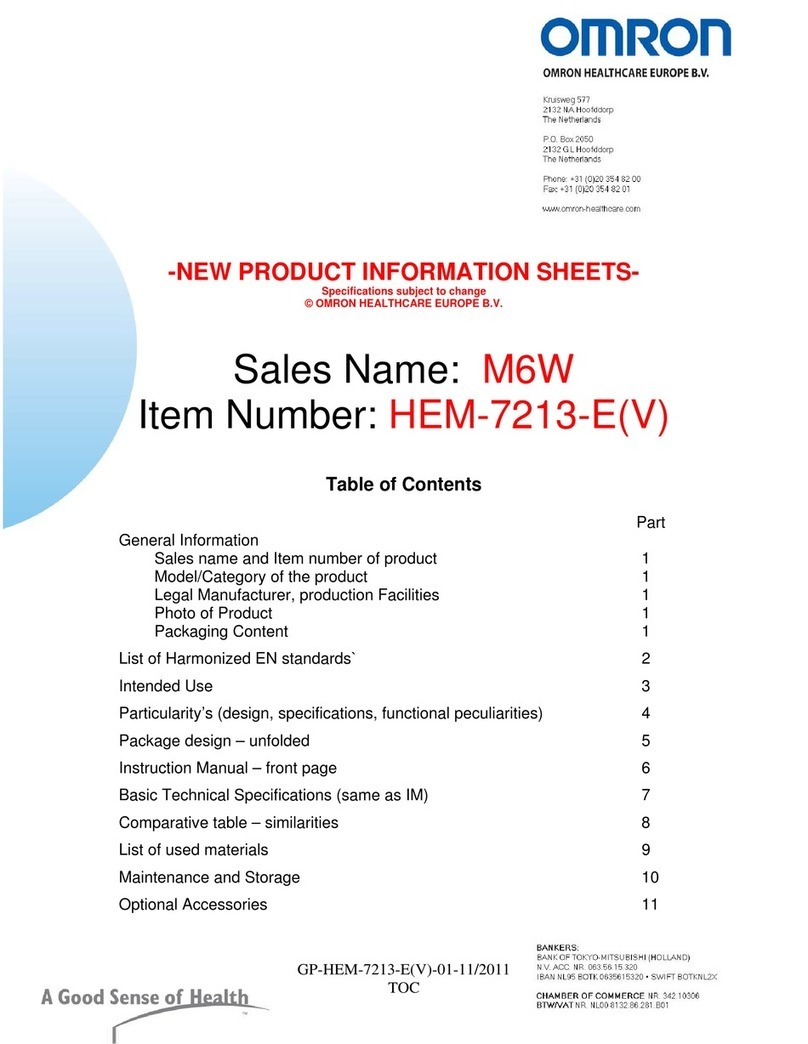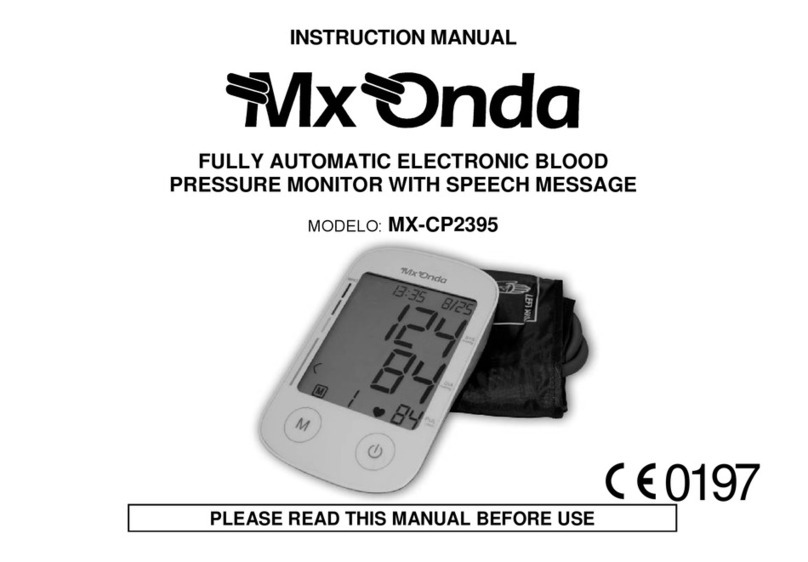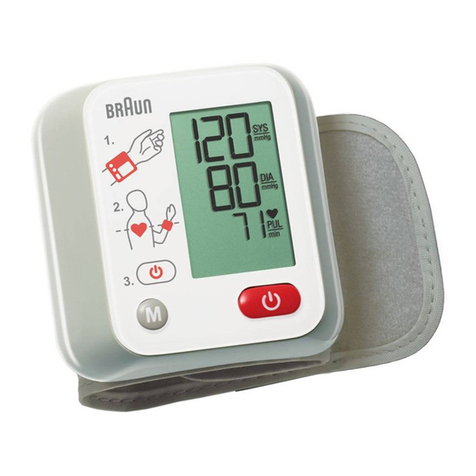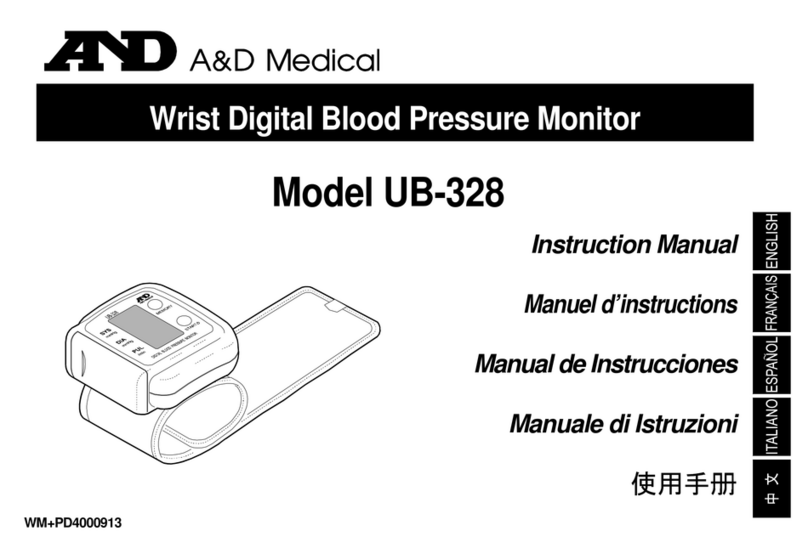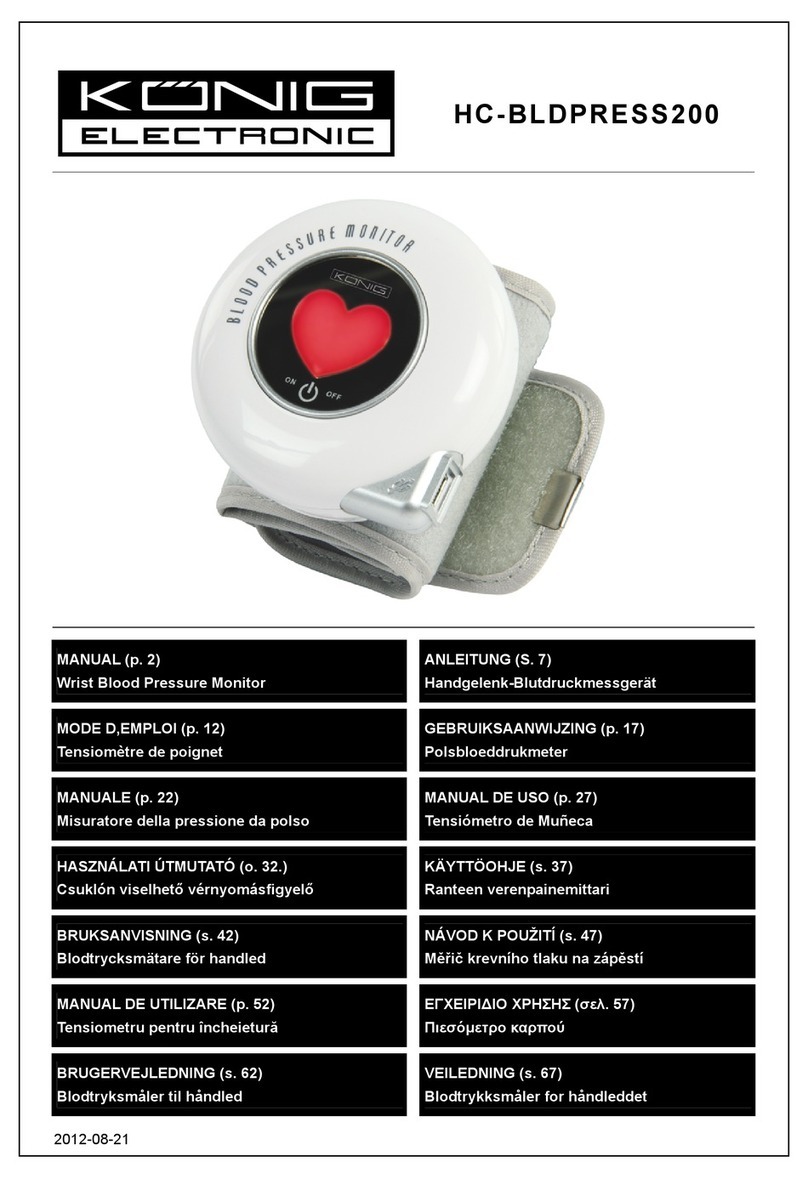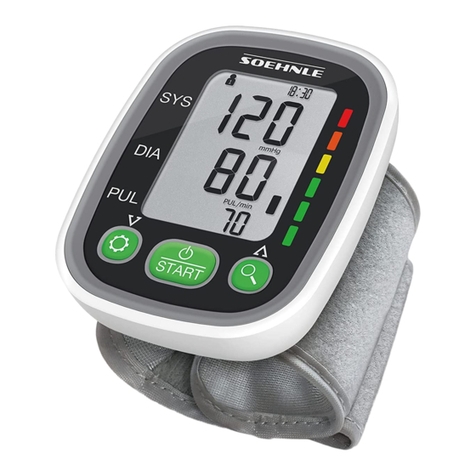
3Microlife BP A6 Advanced Easy EN
What is Atrial Fibrillation (AF)?
Normally, your heart contracts and relaxes to a regular beat.
Certain cells in your heart produce electrical signals that cause the
heart to contract and pump blood. Atrial fibrillation occurs when
rapid, disorganized electrical signals are present in the heart’s two
upper chambers, called the atria; causing them to contract irregu-
larly (this is called fibrillation). Atrial fibrillation is the most common
form of heart arrhythmia. It often causes no symptoms, yet it
significantly increases your risk of stroke. You’ll need a doctor to
help you control the problem.
Who should be screened for Atrial Fibrillation?
AF screening is recommended for people over 65 years of age,
since the chance of having a stroke increases with age.
AF screening is also recommended for people from the age of
50 years who have high blood pressure (e.g. SYS higher than 159
or DIA higher than 99) as well as those with diabetes, coronary
heart failure or for those who have previously had a stroke.
In young people or in pregnancy AF screening is not recom-
mended as it could generate false results and unnecessary
anxiety. In addition, young individuals with AF have a low risk of
getting stroke as compared to elder people.
Risk factors you can control
Early diagnosis of AF followed by adequate treatment can signifi-
cantly reduce the risk of getting stroke. Knowing your blood pres-
sure and knowing whether you have AF is the first step in proactive
stroke prevention.
For more information visit our website: www.microlife.com/afib.
2. Important facts about blood pressure
and self-measurement
Blood pressure is the pressure of the blood flowing in the
arteries generated by the pumping of the heart. Two values, the
systolic (upper) value and the diastolic (lower) value, are
always measured.
The device indicates the pulse rate (the number of times the
heart beats in a minute).
Permanently high blood pressure values can damage your
health and must be treated by your doctor!
Always discuss your values with your doctor and tell them if you
have noticed anything unusual or feel unsure. Never rely on
single blood pressure readings.
There are several causes of excessively high blood pressure
values. Your doctor will explain them in more detail and offer
treatment where appropriate.
Under no circumstances should you alter the dosages of
drugs or initiate a treatment without consulting your
doctor.
Depending on physical exertion and condition, blood pressure
is subject to wide fluctuations as the day progresses. You
should therefore take your measurements in the same
quiet conditions and when you feel relaxed! Take at least
two readings every time (in the morning and in the evening) and
average the measurements.
It is quite normal for two measurements taken in quick succes-
sion to produce significantly different results.
Information for the doctor on frequent appearance of the
atrial fibrillation indicator
This device is an oscillometric blood pressure monitor that also
analyses pulse irregularity during measurement. The device is
clinically tested.
The AFIB symbol is displayed after the measurement, if atrial
fibrillation occurred during measuring. If the AFIB symbol
appears after having performed a full blood pressure measure-
ment episode (triplicate measurements), the patient is advised
to perform another measurement episode (triplicate measure-
ments). If the AFIB symbol appears again, we recommend the
patient to seek medical advice.
If the AFIB-symbol appears on the screen of the blood pressure
monitor, it indicates the possible presence of atrial fibrillation.
The atrial fibrillation diagnosis however, must be made by a
cardiologist based on ECG interpretation.
Keep the arm still during measuring to avoid false readings.
This device may not or wrongly detect atrial fibrillation in
people with pacemakers or defibrillators.
In the presence of atrial fibrillation the diastolic blood
pressure value may not be accurate.
In the presence of atrial fibrillation using AFIB/MAM-mode
is recommended for more reliable blood pressure
measurement.
